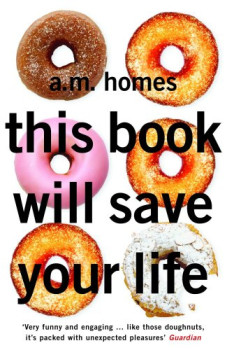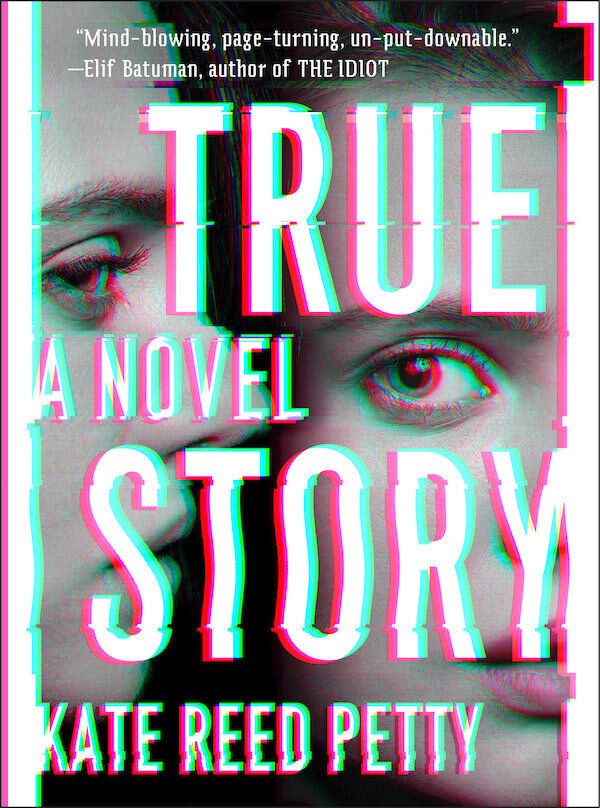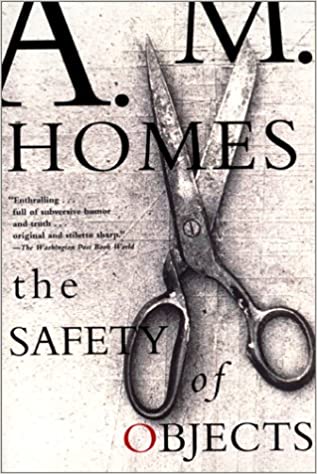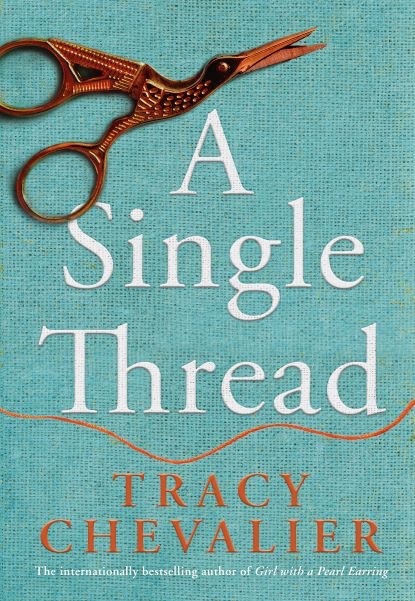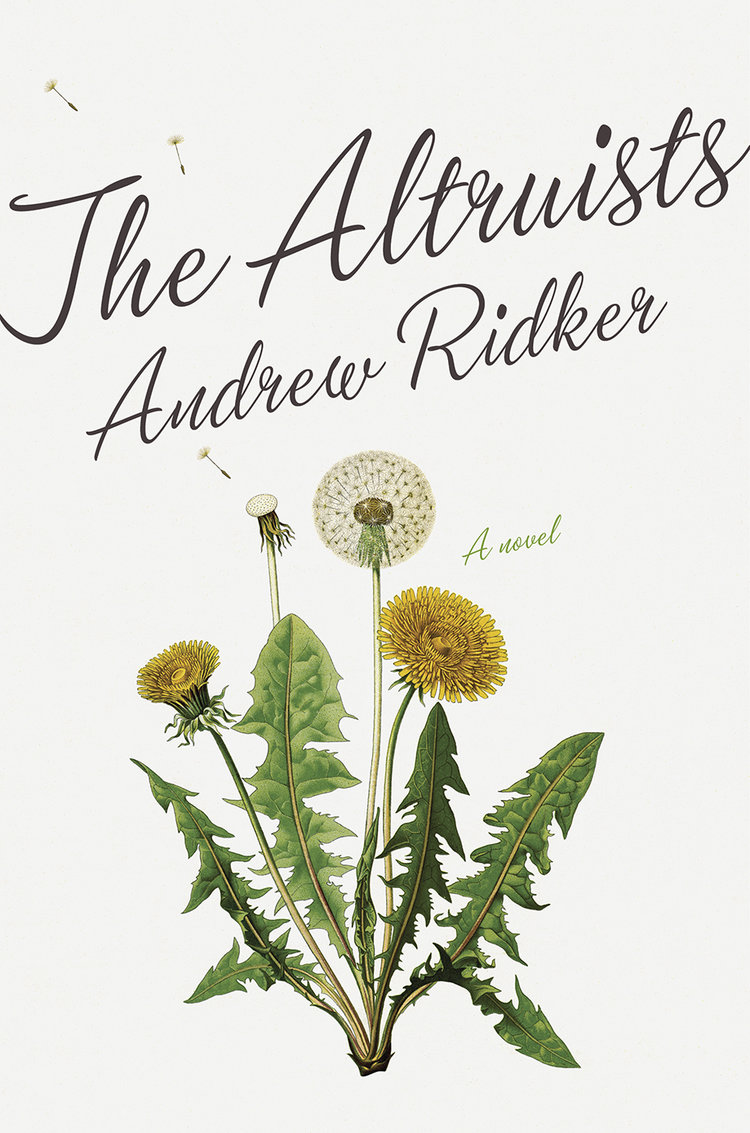My A.M. Homes experiences are not my typical novel-reading experiences. Usually the reader is tapping, empathetically, into a character’s pain and desire. The characters become the real people, and you, the reader, recede: you are not real. But when I read A.M. Homes, I am often burdened by dread and tension that her characters, in their tightly compressed thoughts, seldom give much time to. The effect is strange, often funny, and deeply unsettling: I begin to question my judgment and perception of what I’m reading. I find this effect very powerful: the author has changed, for a time, the way I see. For instance, in Music for Torching, a novel with arson, school violence, a Stepford wife-cum-dominatrix, and a carving knife to the throat, the scene that caught my breath was one where a child spilled his milk across the breakfast table. In her most recent novel, May We Be Forgiven, which recently won the Women’s Prize (formerly the Orange) for fiction, a down-and-out Nixon scholar suffers through a year of crises and, perhaps miraculously, rises like a phoenix from these ashes to become a hilariously overcommitted PTA dad. Nothing here lands where you think it will.
Homes’s fiction is often described as “relentless,” sometimes “chaotic” and “shocking.” But what’s so shocking, as a reader, is to feel so uncertain. Not only don’t we know what will happen, we don’t know how we will react to it, how we will understand it. To read A.M. Homes is to get into a car with a stranger.
A.M. Homes is the author of the novels This Book Will Save Your Life, Music For Torching, The End of Alice, In a Country of Mothers, and Jack; the short-story collections Things You Should Know and The Safety of Objects; a memoir, The Mistress’s Daughter; and others. Homes has been the recipient of fellowships from the Guggenheim Foundation, the National Endowment for the Arts, NYFA, and The Cullman Center for Scholars and Writers at The New York Public Library, among others. She now lives in New York City and teaches in the Creative Writing Program at Princeton.
Homes graciously agreed to this interview during her time in Ann Arbor, where she was a Zell Visiting Writer at the University of Michigan last week. Though I had a million questions about her short fiction and her memoir, in this interview, we focused on her work as a novelist.
Interview
Rebecca Scherm: What might we be surprised to see in your first drafts?
A.M. Homes: The enormous number of pieces of paper, the incredible fragmentation of things. Fragments and half-sentences that I don’t put together for a long time. Hundreds of pages of notes, and then I build the story from that, like knitting or sewing. Increasingly, I work by hand, with pencil and paper. I get better connectivity that way, but then I have to type it up really quickly because I can’t read my handwriting.
Who sees your work first?
Nobody! The dog!
Do you think dependence on early readers is something that falls away over time?
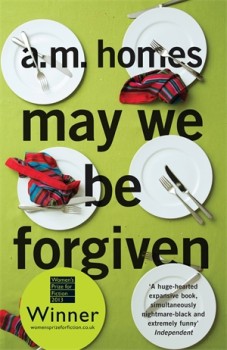 No, I think it’s really helpful to have people to read. When you’re young, in your first workshops, you trade work, and it’s great. But over time it gets harder to find that community of really good readers. You get busy, they get busy. You’ll have a few, and things happen. People die!
No, I think it’s really helpful to have people to read. When you’re young, in your first workshops, you trade work, and it’s great. But over time it gets harder to find that community of really good readers. You get busy, they get busy. You’ll have a few, and things happen. People die!
I give things to Amy Hempel. But you have to wait until you’re pretty far along—years—because you don’t want to waste the read. Susan Choi does this thing at Princeton, “How to Write a Novel in Twelve Weeks.” I said, Susan, let’s you and I do that together! She said, “All right, should we show each other pages?” and I said “Oh, God, no!” At the beginning, I don’t have anything to show. It would be a long time before I have anything to show. I told her we could just talk, just chat. But I was surprised at how completely horrified I was—show pages?! It was like when you’re a kid and somebody wants to get naked. Absolutely not!
I read in another interview that you have described your fiction as operating at a “higher pitch.” Do you write it that way from the start, or is the feverish pace something that happens in revision?
Well, now I feel like I have to compress. I won’t allow myself anything anymore. And it’s immediate—two words in. I’m editing, sharpening, tightening all the time. You have to hit those notes early on. It’s architectural, and you won’t know where you’re going if the architecture isn’t there from the start.
So you used to—
Write normally? I remember with Music for Torching, I sat down the week before I turned in the final draft and with a friend who’s a writer and editor, and we cut eighty pages. Not eighty pages in sequence, but little, tiny tweaks.
Scalpel work.
A lot. I wish I had more tolerance for the unfolding of a story, for something more languorous. I think some of that is generational. We live in a time of compression, of layered images. Last night, I heard Ann Beattie read this great new story, so funny. I wish I’d written it. But it was so full of stuff, events and actions, and I don’t usually think of her work as having that piling up of stuff. That’s the moment we’re living in. Everything is breaking news, and that’s maybe how we’re writing now.
I’ve met some writers—novelists, in particular—who don’t want their work to be reflective of the popular culture of its time. They’re worried it will date them. But your work seems very concerned with reflecting the current moment.
No one wants to be dated. On the other hand, as the sculptor David Smith said, no artist can create work outside their time. I’m interested in not just documenting my time—that does become dated—but how that time raises questions about human behavior, which I don’t think changes much over time.
In Music for Torching, the danger seems to be from within the couple: We are bad parents, bad partners, bad friends. But it ends, horrifically, with an act committed by someone outside the family.
But it comes, in part, from the narcissism of the parents, who aren’t paying attention to what’s happening.
Right. We knew when Sammy spilled his milk that something terrible would happen to him!
Ha! I didn’t say that. You did.
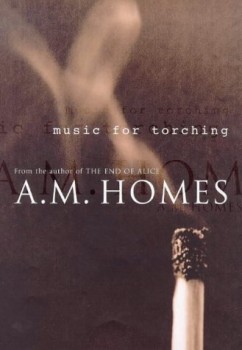
I did. But if the threats in Music for Torching feel internal, within main characters, in May We Be Forgiven the threats are more external.
Are they? I hadn’t thought about it. For me, May We Be Forgiven is about a person trying to figure out if he can live, how he can live. There are a lot of external things that happen, a randomness about it, but the core of what drives it is internal.
But what do I know? When you’re writing, you don’t think about these things. You’re just thinking about your characters, the story you’re trying to tell, not “how is someone going to describe this to me?” You have no idea.
That’s what I found so alarming about my first workshops—I’d never heard anybody describe my work before. What are some ways that people describe your work that feel right to you, and what are some ways that feel wrong?
I think the work is very American, for better and worse. I think it’s about our relationship to our public and private lives, about they way we see ourselves and the way we’re seen.
In both May We Be Forgiven and This Book Will Save Your Life, some people were negative because the books have “happy” or optimistic endings. “Homes has sold out! She’s gone saccharine!” But in writing those books, to get to the point where there was hope or optimism—it was so much harder. I don’t know if it’s just the nature of literary novels to go downhill, to end tragically, or if book reviewers are crabby and bitter people who prefer a tragic end. Within the organic telling of the story, Harold Silver becomes homeless for a while, practically suicidal, and I asked myself, “What has to change for him to change?” You can’t just pick him up and change him. It has to be earned in some way. I was interested in that idea. How do you live and write optimistically in a time that is not inherently optimistic in the culture? I’ve been struggling with that—and it’s harder!
I was shocked by the end of May We Be Forgiven. People like to call your work shocking, but it was this optimism and redemption that shocked me. [Ed. note: I was expecting it to end like Music for Torching.]
You know, if it is shocking, it means it touches a nerve. It means I articulated something beneath the surface. It’s already there. With the possible exception of certain passages, organic to the character, in The End of Alice, where the character is pushing you, the reader, as far as you will go, provoking and upsetting you, to see if I can get you to reject the character, and then me, the storyteller, I’m not interested in pushing buttons. I’m interested in prompting, stimulating conversation. Who are we, what are we up to, and what are we accountable for?
There are writers I love whose work I find really difficult to talk about, but your work is really good for writers to talk about, especially how much we intend readers to do, what we intend to do ourselves.
As a teacher, that’s really important. Your reader has to leave the story with something, but so does your character.
I fear this is a geeky question, but both Music for Torching and May We Be Forgiven include scenes of men being mistaken for other men because they’re wearing the other’s clothes. What’s that about?
You know, I’m fascinated by shapeshifting. I was always interested in it, and then I saw this Caryl Churchill play called The Skriker [about a fairy who transforms into objects] at the Public Theater years ago. Her work is very interesting and important to me. But I keep wanting to write about transformation, a story about people who go into objects. Transmogrification? We have a running joke in my family where one of us will pick up some object and say, “Aunt Lena, you have to quit calling us on this coffee pot.” And it’s just funny, but I like the idea that people could come back to us in some way. I don’t know where we go when we go—is it just a light switch that turns off? I don’t know, but it interests me.
Do you feel like a shapeshifter?
You know? If I were doing a better job, I would say yes. I’m much too earth bound.
What would it look like?
Better. The work would be more fluid, lighter, more magical. Give further articulation to those things that are very hard to find language for.
Something I see in your work that interests me as a novelist is the way your characters reflect—or don’t reflect. They seem so impulsive initially, yet those impulses reflect deep-held and hidden desires. How do you think about how your characters think, how they are allowed to think and reflect?
I had Grace Paley as a writing teacher, and Grace had this notion about the truth according to the character. I spend a lot of time thinking about what is accurate for each character. What is their economic history? I wish that were taught more—Jane Austen to Jay McInerney and the difference in how people afford to live and how that changes the storytelling. I look at their social history, the events that tell me whether they would make one choice or the other. And then, if I’m doing my job well, I’m not driving the car any more—they are.
With Harold Silver, early on, I remember thinking, “this book is really resisting me.” Why is he so difficult to write? I realized it was hard to write because Harold Silver doesn’t know himself, and only once he starts to know himself did the book become easier to write.
And then some friends would ask, “Am I supposed to like Harold Silver?” I don’t know. I’m not thinking about that. I’m trying to render this character and make him fully dimensional. The “likability” of characters is very modern idea—it has nothing to do with storytelling. It is irrelevant. And yet it gets talked about in workshops. “That’s not a likable character.” Well, A+.
I was going to ask you about Harold Silver’s particular brooding, how he can brood about Nixon but not about, say, Claire’s depression. But of course that is the most honest portrayal of a character who doesn’t know himself.
Yeah, Harold and Nixon both. I grew up in Washington, so Nixon was the first president of my conscious childhood. Ann Beattie grew up there, too, and her book Mrs. Nixon came out last year. So my own moral upbringing and coming to consciousness as a teenager dovetailed with watching this president unravel, essentially in my hometown. When I was in junior high, they were filming All the President’s Men, and I skipped school to go to the opening of the movie.
It was fascinating, watching this happen—dark and complicated. Nixon was an incredibly bitter person who didn’t have any friends, and he became president. How do you manage that? That couldn’t happen now. Nixon could never make it to presidency now.
He’s not a likeable character.
No, he’s not. In fact, the Nixon debate went so badly that all candidates after that until Gerald Ford refused to do it. But now it’s such a huge thing. That kind of social, political, and cultural history is deeply interesting to me.
As you describe seeing Nixon unravel on TV, seeing them film scenes for All the President’s Men, seeing the movie, and then creating your own fiction about that unraveling, I’m seeing all those layers of seeing and being seen in your work.
That’s the time we’re in right now. We Instagram our food before we eat it.


